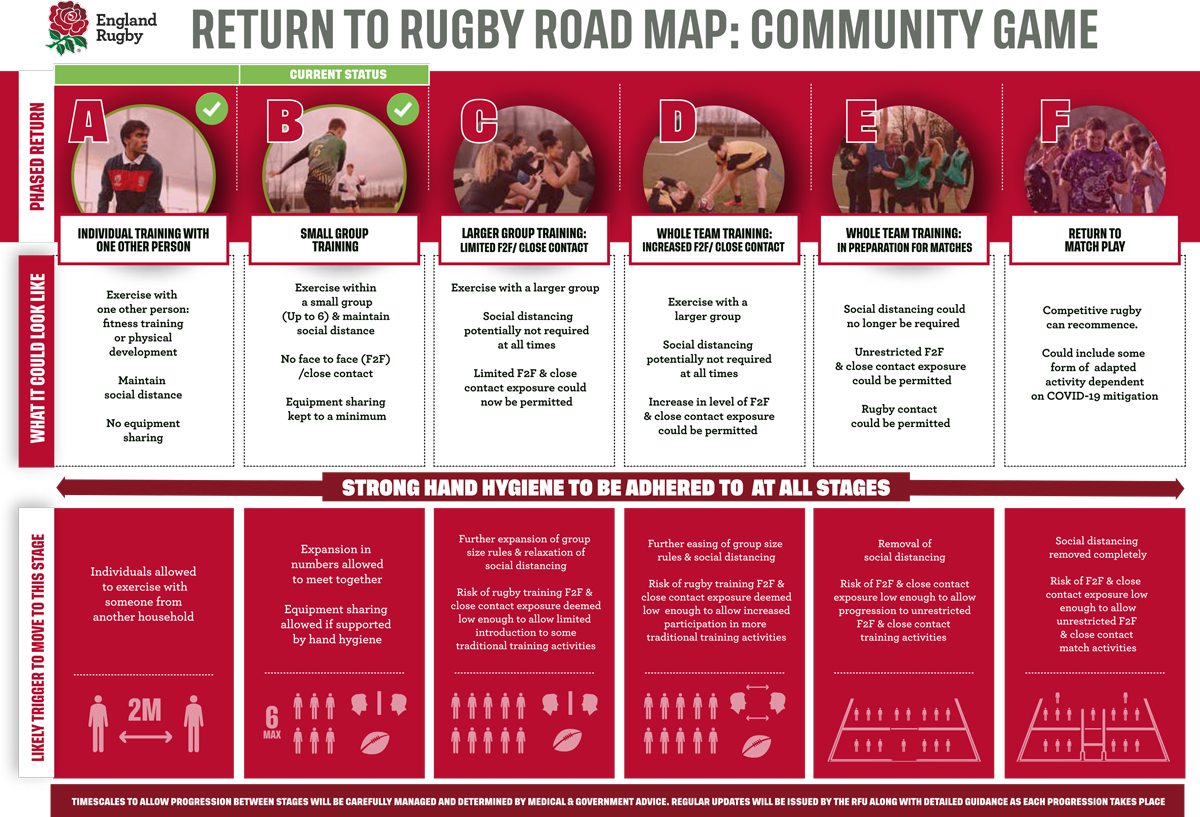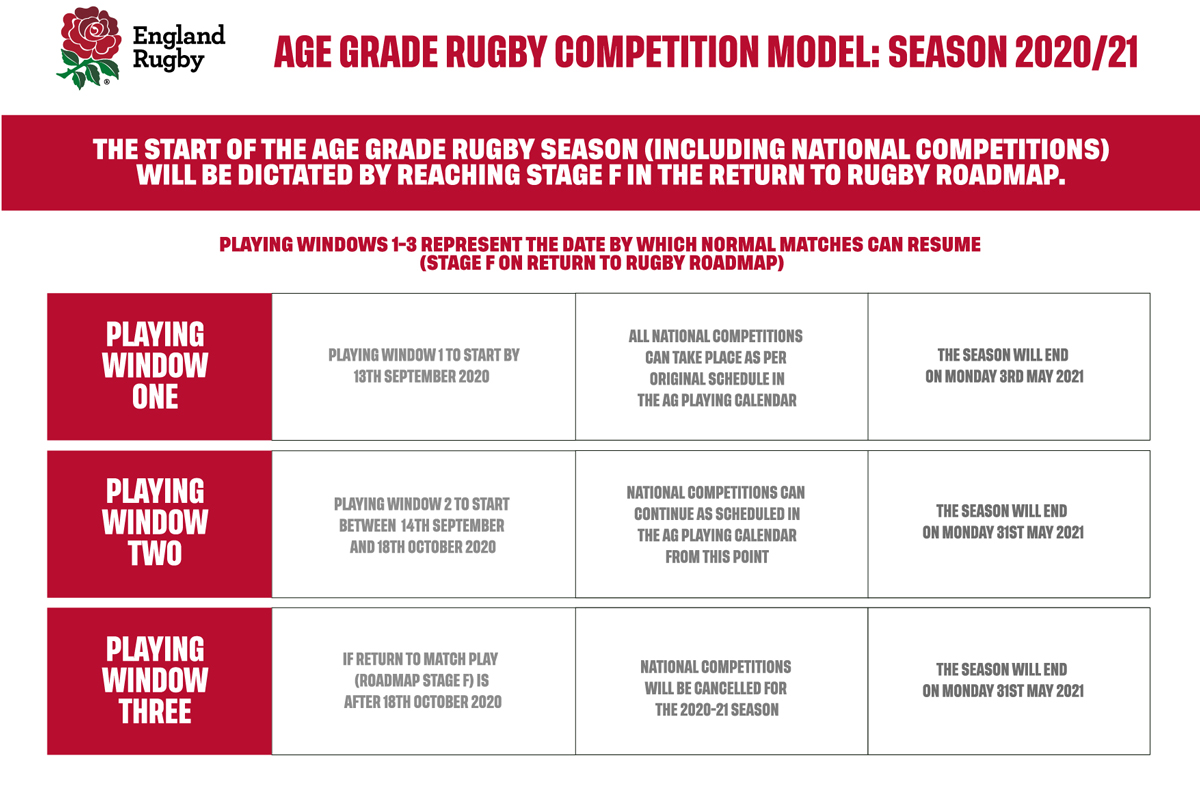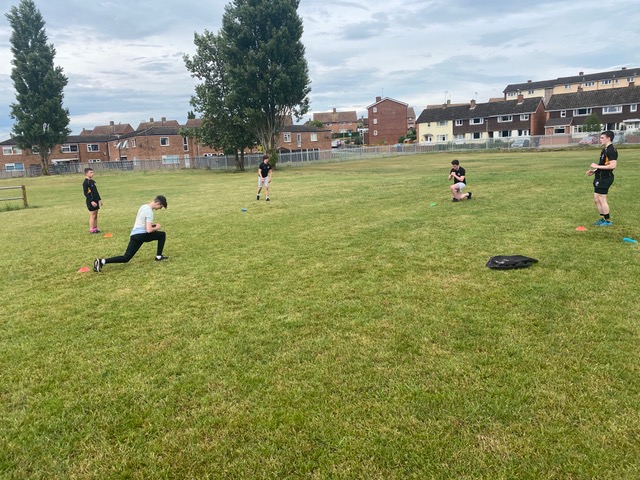As lockdown begins to ease we know that many of our players are keen to start playing rugby again as soon as is possible. The RFU provided guidelines at the beginning of June which has allowed us to re-start some Return to Rugby training for some of our teams, which have been well attended and welcome, but we can only accommodate a certain amount of teams at any one time to ensure that we maintain safety for all concerned.
Following previous guidance, the RFU have, within the last few days, issued more guidance in terms of the different season start dates as and when it is deemed safe to return to play e.g. we reach Phase F on the RFU Return to Rugby roadmap (see below) – currently we are at Phase B so we still have a way to go. However, we thought it would be helpful to share the framework for a meaningful return to competitive rugby with greater flexibility to enable games to be played.
The models have been developed by two RFU working groups – one for the adult game and one for age-grade rugby which have been approved by the RFU Governance Committee. Each group has considered player welfare, flexibility in response to Covid-19, adaptable models that priorities local matches early in the season to reduce travel, support club revenue, and maintain player participation.
The start of the Age Grade rugby season will be dictated by reaching stage F in the Return to Rugby Roadmap. The aim is to maximise participation and retain as many current age-grade players of all ages and levels as possible. As with the adult game, in the event of a delayed start to the season, the season is able to be extended to the end of May as a one-off to support the delivery of meaningful activity. In all the scenarios, player welfare and safety is a priority and activity must continue to be in line with Regulation 15.
The RFU are continually reviewing the situation and providing welcome guidance, however, whilst the news of potential start dates for season 2020/2021 is good, we all still have to be mindful that we must monitor the situation and only make the decision to return to rugby when it is safe and practicable to do so.


